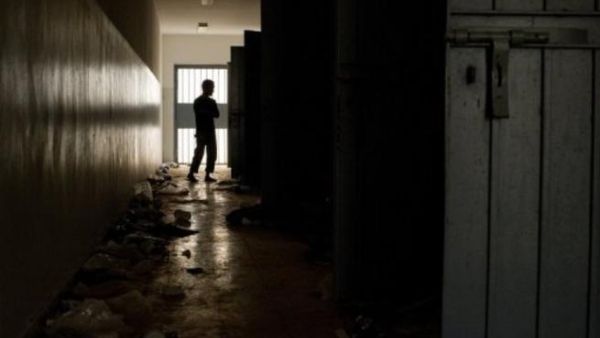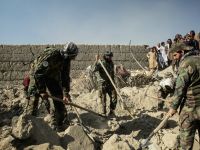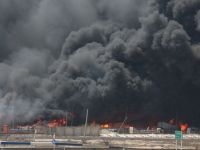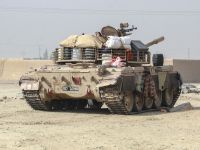At least 2,300 people have died under torture in Syria’s prisons since the outbreak of the war, the Syrian Network for Human Rights reported Monday.
That figure includes 80 children, 25 women, and 51 people aged over 60. Only 5 percent of all victims were armed rebels, the report adds.
The rate of killings under torture is increasing, it says, stating that March 2013 accounted for the highest figure, with an average of five deaths each day under torture.
The real number may be far higher, it adds, as “there are prisons torturing people to death and then throwing away the bodies ... in vacant land or rivers.”
The report also details horrific methods of physical and psychological torture which it says are being used in regime prisons, including rape, electrocution, hanging and crucifixion.
The largest number of victims were in Homs – 573 – and then Deraa, where the uprising began, with 360 deaths.
The group calls on the U.N. to investigate the claims, and refer guilty parties to the International Criminal Court, and urges the Arab League to pressure the Syrian regime’s main allies – Russia, Iran and China – to reconsider their support for Assad.
Regime warplanes struck across the country Monday, as the army appears to have stepped up its campaign against the opposition, a day after 31 children were killed in Syria, according to activists.
At least 130 people were killed across the country Sunday, according to the Syrian Observatory for Human Rights, an activists’ network.
On Monday, warplanes targeted the suburbs of Damascus, Homs, Deraa and Aleppo, according to the Local Coordination Committees, another activist network.
The rebel-held city of Raqqa was also targeted, according to the opposition Shaam News Network. In the Damascus suburb of Douma, six civilians were killed when an airstrike hit the area, it added.
Also Monday, the regime Al-Baath daily newspaper criticized the U.N.-Arab League envoy Lakhdar Brahimi, accusing him of "not listening to the Syrian people" and suggesting he may soon resign.
Brahimi replaced former U.N. secretary general Kofi Annan in the envoy role in September, but has been criticized for failing to initiate dialogue between the regime and opposition since then, as the death toll rises by an average of 150 each day.








